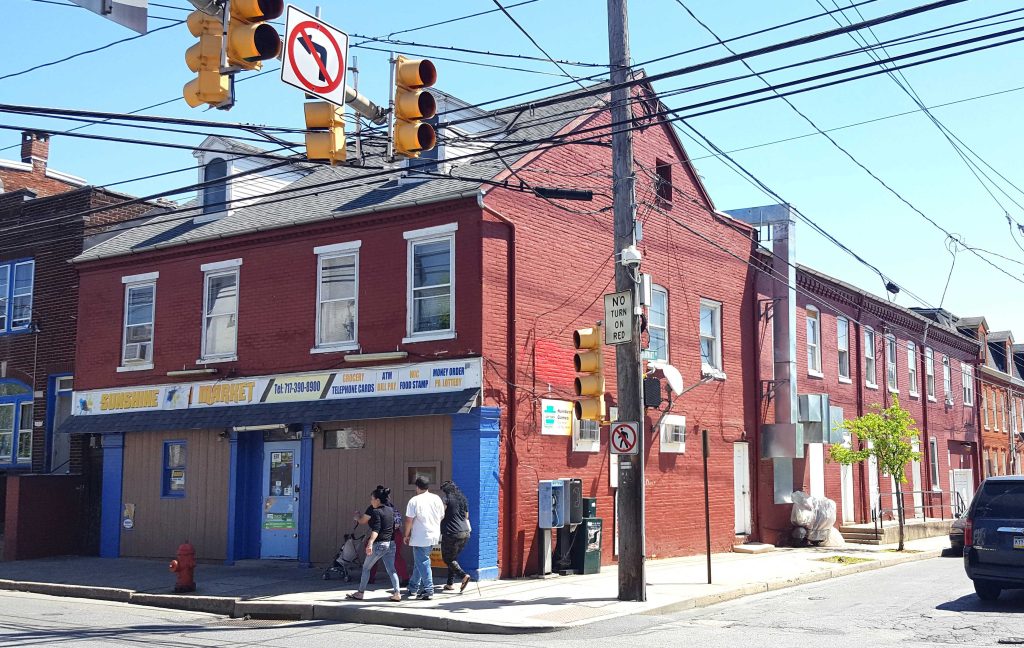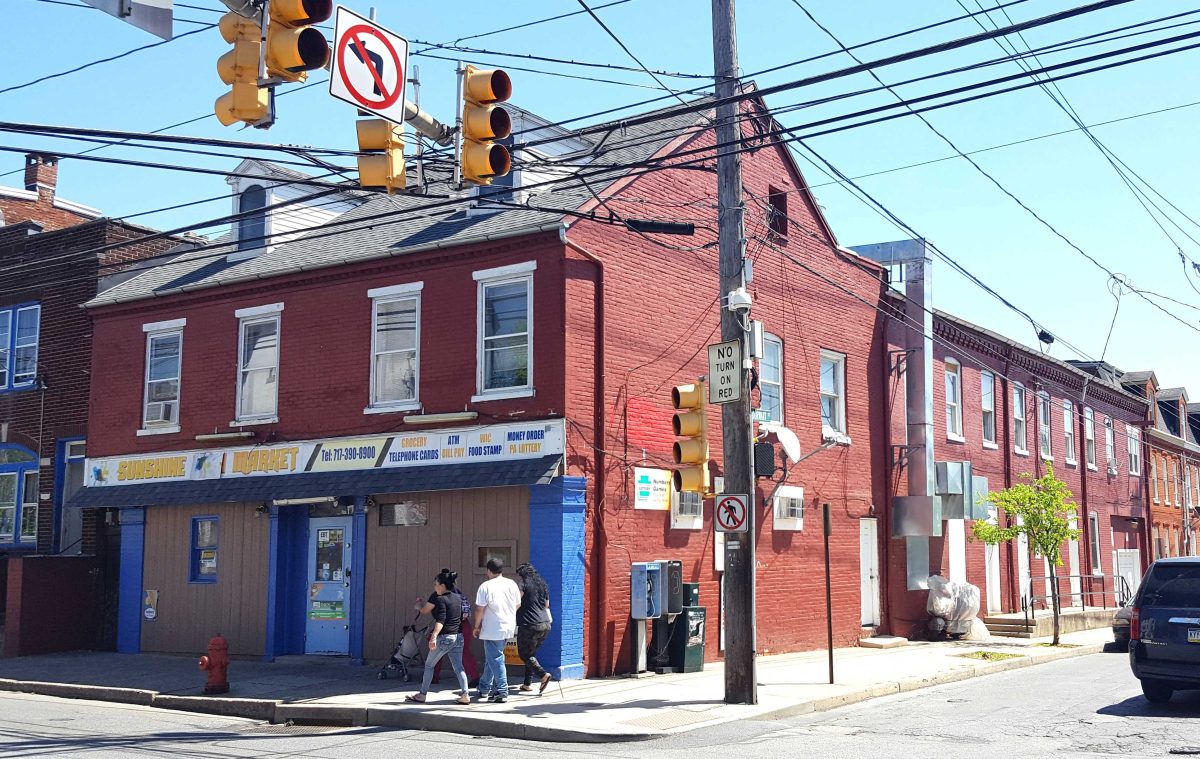
The building at 568 Manor Street is one of the oldest surviving buildings on Manor Street, having been built in 1852. Like most old stores on Cabbage Hill, it holds a special place in the memory of today’s older Hillians, with many neighborhood old-timers fondly recalling it as the Manor Street 5&10. But it also has an interesting history that goes back way beyond living memory.
Philip Schum, a German immigrant, built the double, two-and-a-half-story, brick house on the southeast side of Manor Street, just across from where Old Dorwart Street intersected Manor from the west. New Dorwart Street would not be opened for another few decades; instead, a stream ran past Schum’s new house, in the middle of what would later become New Dorwart. The double house had two front doors and was divided into two houses by a wall running through the middle of the building. The address of the house, according to the 1857 directory, was “Manor nr the Bridge”, referring to the bridge that had been built to carry Manor Street over the stream.
Schum ran a grocery store out of his new house, and soon added coverlets he made to his store inventory. The coverlets turned out to be very popular, so much so that he soon moved his store to Water Street, and focused exclusively on coverlets, becoming a wealthy, successful merchant. Schum and his wife would be killed near Salunga in 1880 when their carriage was hit by a train.
In 1857, when Schum moved to Water Street, he sold the double brick house on Manor to Jacob Shindel, the son of his neighbor, Peter Shindel, who lived in a log house along the stream next to Schum’s property. Jacob Shindel then sold the house to Adam Finger, a German immigrant, in 1860, for $3,000. Finger, his wife, and their four children lived on the second floor, and ran a grocery and dry goods store on the first floor of one side of the building. Over the forty years that Finger lived and worked there, he added more store and storage space to the rear of the house. He also sold the back of his lot for the building of houses facing New Dorwart in the 1880s, and then sold the land he owned on the northeast side of the next block of New Dorwart for more houses in the 1890s.
After Finger’s death, his son Philip sold the house and store to Philip Fellman for $2,500. Fellman and his brother Louis ran a hardware store out of the first floor, and lived above it. In the 1910s, the Fellmans added a three-story brick shop and warehouse behind the house along New Dorwart, where they added metal-working to their resume. For a brief spell in 1922-24, the store was leased to S.S.S. Stores of New York City.
In 1934, the house and store, as well as the warehouse and shop behind it, were sold for $2,705 at a Sheriff’s sale to Leonard Horst of Philadelphia. Horst never came to Lancaster but leased the store to American Stores Co, Inc., a grocery chain, and rented out the second floor as a residence.
In 1944, after Horst’s death, Joseph Martin of Dauphin County bought the property for $6,500. Martin also was a landlord who continued to lease the store, this time to Acme Supermarkets, renting out the second-floor residence. Martin also converted the warehouse and shop behind the house into apartments, which they have been since.
In the late 1940s, Martin leased the store as the Manor Street 5&10 Cents Store, which it remained into the mid-1970s. The store advertised frequently in the local newspapers, especially for special sales for Christmas, Easter, Fourth of July, and Back-To-School days. In 1970, a fire in the attic was extinguished by the city fire department before any significant smoke or water damage could occur.
Santos Rodriguez bought the house, store, and apartment building in 1972 for $12,500. He completely renovated the apartments over a couple of years and then in 1976 sold the property to Charles Rettew of Lititz for $45,000. Rettew flipped the property that same year for $57,500, selling it to Michael Mastros of Lancaster. Mastros continued leasing the store and renting the apartments until he died in 2012 in a car accident.
For several years starting in the mid-1970s, the store was occupied by Playland and then Denny’s Game Room. The store was vacant throughout most of the 1980s. From 1991 to 2007, the store was occupied by De Jesus Mini Market, and from 2008 to 2011, J&A Mini Market. For the last twelve years, Sunshine Market has operated out of the store. The second floor and three-story rear attachment are still rented as apartments. The nearly 175-year-old building at 568 Manor has seen several modifications and additions. It started as a double house, serving as a store and residence, which it was until the first few years of the 1900s. At that point, the entire first floor was reconfigured as a store with a storefront, including two five-by-twelve-foot show windows (now covered); a cornice that spanned the entire front of the store, supported by large brick columns; and a recessed entrance. Added to the rear, also in the 1910s, was a three-story warehouse and shop that has been an apartment building for the last one hundred years. It started out as a house and store on a dirt road near a bridge over a stream, and ended up as the home of some of the key businesses in “downtown” Cabbage Hill.

